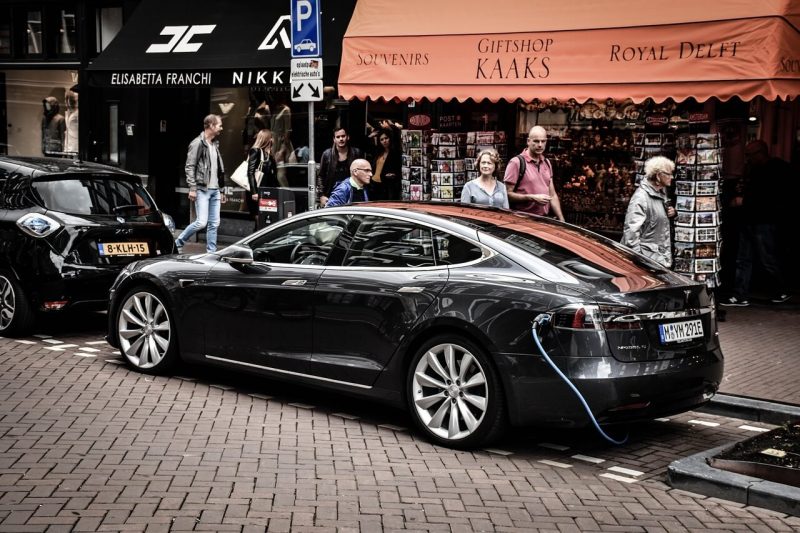Beyond the Road: Exploring the Future of Automobiles

The automotive industry has witnessed remarkable advancements over the years, revolutionizing the way we travel and shaping the world we live in. From the early days of motorized vehicles to the cutting-edge technologies of today, automobiles have become an integral part of our lives. However, the future holds even more exciting possibilities for the automotive world. In this article, we will delve into the evolving landscape of automobiles, highlighting the challenges, trends, and future innovations that will shape the industry in the years to come.
The introduction of automobiles was a significant milestone in human history, providing a new means of transportation that transformed society. The invention of the automobile paved the way for increased mobility, economic growth, and personal freedom. As we venture into the future, the automotive industry continues to push boundaries, seeking innovative solutions to address existing challenges and meet the evolving needs of consumers.
Evolution of Automobiles

Early Automobiles
The journey of automobiles began with the invention of the first self-propelled vehicle, the steam-powered automobile by Nicolas-Joseph Cugnot in 1769. Over the years, various pioneers contributed to the development of motorized vehicles, leading to the birth of gasoline-powered cars in the late 19th century. The Model T, introduced by Henry Ford in 1908, revolutionized the industry with its affordability and mass production techniques, making cars more accessible to the general public.
Transition to Modern Cars
The automotive industry witnessed a rapid transformation in the 20th century, with advancements in technology, design, and performance. The introduction of assembly lines and standardized manufacturing processes allowed for greater efficiency and faster production rates. This era saw the rise of iconic automobile manufacturers and the development of features like power steering, air conditioning, and automatic transmissions, enhancing the driving experience.
Current Challenges and Trends
Environmental Concerns
With the increasing awareness of environmental issues, the automotive industry faces the challenge of reducing its carbon footprint. As a result, there is a growing demand for eco-friendly alternatives to traditional gasoline-powered vehicles. Electric cars have gained significant popularity in recent years, offering zero-emission transportation and advancements in battery technology that address range limitations.
Autonomous Vehicles
Another significant trend in the automotive industry is the emergence of autonomous vehicles. Self-driving cars have the potential to revolutionize transportation by improving road safety, reducing traffic congestion, and enhancing the overall efficiency of the transportation system. With advancements in artificial intelligence and sensor technologies, autonomous vehicles are becoming a reality, although regulatory and infrastructure challenges remain.
Electric Cars
Electric vehicles (EVs) have garnered immense attention due to their environmentally friendly nature and technological advancements. EVs offer several advantages, including reduced emissions, lower operating costs, and government incentives. The development of charging infrastructure and improvements in battery technology have overcome some of the initial limitations of electric cars, making them a viable option for consumers.
Future Innovations

Advanced Safety Features
Safety has always been a top priority in the automotive industry. In the future, vehicles will incorporate advanced safety features, such as adaptive cruise control, lane-keeping assist, and automatic emergency braking systems. These technologies aim to minimize accidents and improve road safety, providing a safer driving experience for all.
Connected Cars
The integration of cars with the digital world is an emerging trend that will shape the future of automobiles. Connected cars utilize advanced communication technologies to enable seamless connectivity between vehicles, infrastructure, and the Internet. This connectivity opens up opportunities for enhanced navigation systems, real-time traffic updates, and vehicle-to-vehicle communication, improving efficiency and creating a more personalized driving experience.
Flying Cars
While once considered a futuristic concept, the idea of flying cars is inching closer to reality. Several companies are actively working on developing prototypes and exploring the feasibility of urban air mobility. Flying cars could potentially alleviate traffic congestion and provide faster transportation options for short distances. However, numerous technical, regulatory, and safety challenges need to be addressed before widespread adoption.
Impact on Society
Transportation Efficiency
The future of automobiles promises to enhance transportation efficiency, improving the overall movement of goods and people. With advancements in autonomous and connected technologies, traffic congestion can be minimized, and commuting times can be reduced. Efficient transportation systems have the potential to positively impact productivity, reduce energy consumption, and improve the quality of life for individuals and communities.
Changing Infrastructure
As automobiles evolve, the infrastructure supporting them must adapt as well. Charging stations for electric cars, smart traffic management systems, and dedicated lanes for autonomous vehicles are some of the changes that will shape future infrastructure. Governments and urban planners will need to invest in upgrading and designing transportation systems that support innovations in the automotive industry.
The future of automobiles is an exciting and transformative one. From advanced safety features to connected and autonomous vehicles, the industry is on the brink of a new era. As we move forward, it is essential to balance innovation with environmental sustainability and address the challenges associated with infrastructure and regulations. By embracing these opportunities, the future of automobiles will revolutionize transportation, reshape cities, and provide a safer and more efficient travel experience for all.